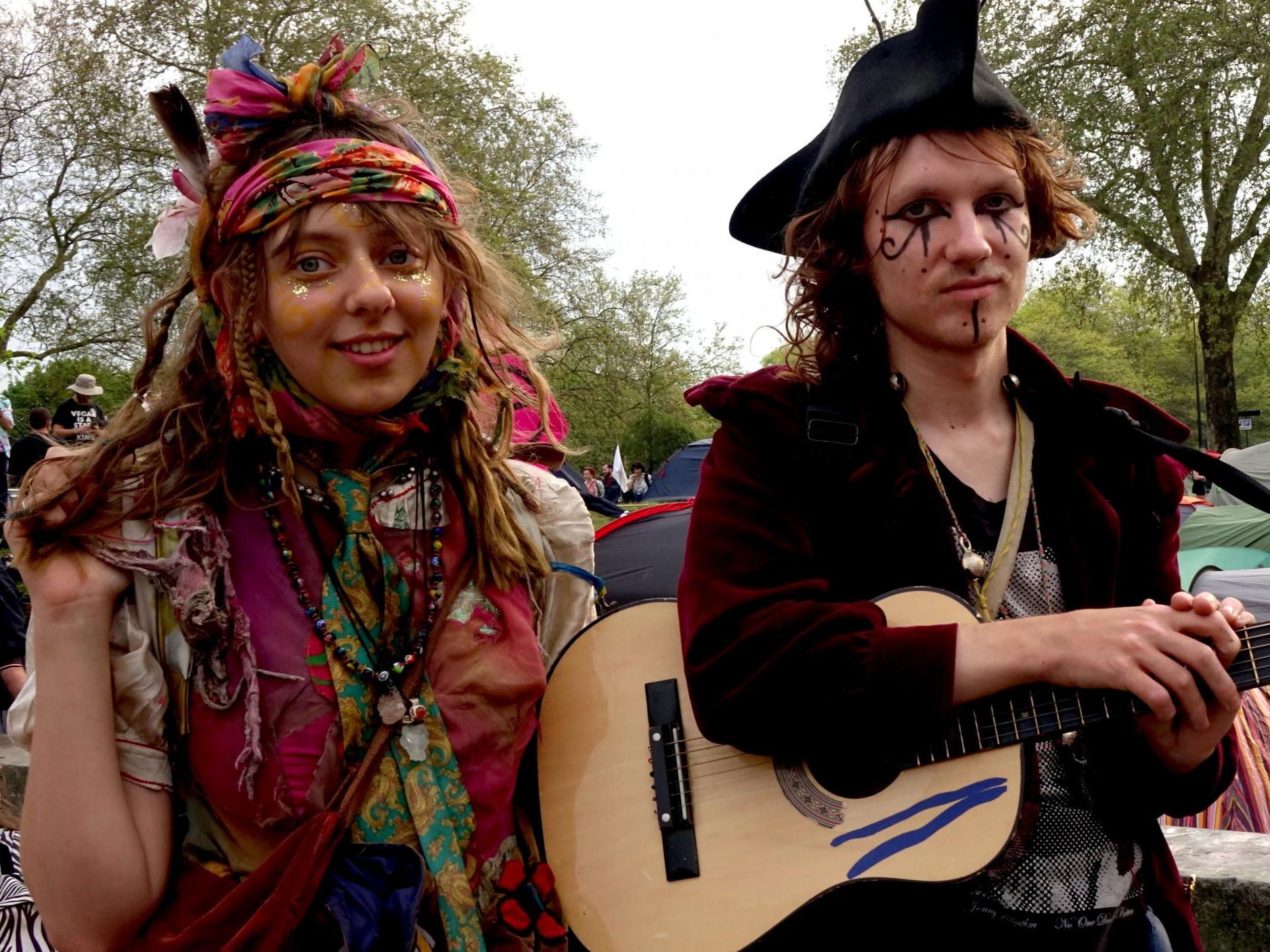Extinction Rebellion supporters row over whether ‘hippy language’ is watering down climate change message
'Perhaps we shouldn’t be too "rainbow rhythms"'

Extinction Rebellion speakers should stop using ”hippy” language because it is watering down the message about climate change, supporters of the group have said.
Others have criticised the movement for its “cliquey” nature in Facebook posts.
“Facts and figures need to be at the forefront of our argument otherwise I fear we lose most of the population in the fight,” one supporter wrote after making it clear she supported the group’s ambitions. ”Without this, we are categorised as a ‘bunch of hippies’ and people stop listening.”
She said that it was crucial to steer away from using “hippy” language during public speeches, because members of the general public she had spoken to said this very issue had put them off joining the movement.
Another supporter said she had left the ceremony in London’s Marble Arch which closed a week of protests around the capital early for exactly that reason.
She wrote that she would have preferred to hear an inspiring speech about what the group had achieved rather than “faux magic talk.”
Several others agreed, including “veteran protestor” Richie Morton, who accused the group of being cliquey. “Good work chaps, but lose the exclusive cliqueness please,” he wrote.
Kiran Morton said: “Perhaps we shouldn’t be too ‘rainbow rhythms’ because we actually need the Marks of this world on side. We won’t succeed unless they are.”
However, others argued that the “hippy” element of the movement was important.
Laura Hughes said: “Being emotional is a part of this movement for me. Showing grief and connection shouldn’t be masked because we need everyone to feel these things too.”
She later told The Independent: “The whole of Extinction Rebellion is about ceremonies. They are full of ‘hippy’ talk, like ‘loving the Earth’ and ‘connecting’ and ‘loving each other’ – but I’m not sure how loving the police came into that.

“One man I met told me he’d been waiting 40 years for this to happen and he didn’t look like a hippy until I saw him dancing. So maybe many of the hippies are already in disguise, ready to be taken seriously.”
But she said that in light of the legal frameworks on climate change that advocated emissions trading and allowed rich people to pollute, it was pertinent the scene had more hippies than green capitalists.
Extinction Rebellion spokesperson Jayne Forbes told The Independent that while hard facts and information were available to see on the group’s website, the spiritual element of the movement was no bad thing.
“I’m not sure where all this hippy stuff is coming from, though to be fair, there was a bit of spiritual stuff at the closing ceremony, which I avoided as it’s not my cup of tea,” she said.
“Some of us don’t quite get it ourselves. Nevertheless, it’s a very important element. And we would like to try modelling a different approach to life, one that talks about caring and sharing instead of image, status, identity and money.”
Ms Forbes said it was unfortunate some people felt the group was cliquey and hoped people found it welcoming. The group aimed to speak in a language everyone could understand.
“When you have such a diverse group of people, you want to cover all elements of conversation and I think with all the different speakers, we probably did,” she said.
Join our commenting forum
Join thought-provoking conversations, follow other Independent readers and see their replies
Comments
Bookmark popover
Removed from bookmarks